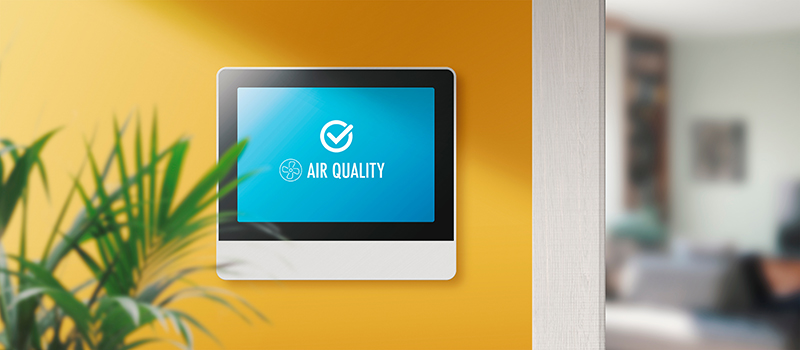The quality of the air we breathe indoors has a profound impact on our health and well-being. Poor indoor air quality can lead to respiratory issues and cognitive deficits. In this blog, we delve into the importance of maintaining good indoor air quality. We discuss methods for monitoring your home’s IAQ performance. We also provide actionable insights to address poor indoor air quality.
Importance of Good Indoor Air Quality
Indoor air quality influences our health and comfort. This alone makes it essential to have good indoor air quality. Both short-term and long-term exposure to air pollution can lead to health issues. These include respiratory diseases, heart issues, and cognitive deficits. This poses a threat to our well-being. Healthy indoor air quality contributes to a favorable environment. It enhances comfort, productivity, and well-being. Maintaining good indoor air quality in schools is crucial. Poor indoor air quality can affect the health and performance of students and staff.
How to Track Indoor Air Quality Performance
Monitoring your home’s IAQ performance is essential. It allows you to identify potential issues and ensures a healthy living environment. There are some effective methods for tracking IAQ. Use dedicated IAQ monitors that measure various air pollutants. Be sure to track particulate matter, volatile organic compounds, and carbon dioxide levels. Assess your HVAC system for proper functioning and filtration efficiency. Be sure to look for potential mold or moisture issues. Seek professional IAQ assessments to gain comprehensive insights into your home’s air quality. This includes potential sources of pollution and recommended improvements.
Addressing Poor Indoor Air Quality
If your home has poor indoor air quality, taking prompt action is crucial. You need to safeguard your health and well-being. Consider the following steps to address IAQ issues.
- Source Identification. Identify and get rid of specific sources of indoor air pollution. These include mold, pet dander, tobacco smoke, or chemical emissions from household products.
- Enhanced Ventilation. Improve ventilation in your home. Use exhaust fans, open windows, and ensure adequate airflow throughout the living spaces.
- Air Purification Systems. Consider investing in air purifiers with HEPA filters or activated carbon filters. They can remove airborne pollutants and allergens.
- Regular Maintenance. Perform routine maintenance of HVAC systems. Replace filters, clean ducts, and address any leaks or inefficiencies.
Contact Us
Monitoring and maintaining good indoor air quality is key. You should strive to create a healthy and comfortable indoor environment. You should use monitoring methods and take proactive measures to address air quality. If you need help improving your indoor air quality, contact us. We can help you ensure a living space that promotes well-being and vitality for you and your family.

